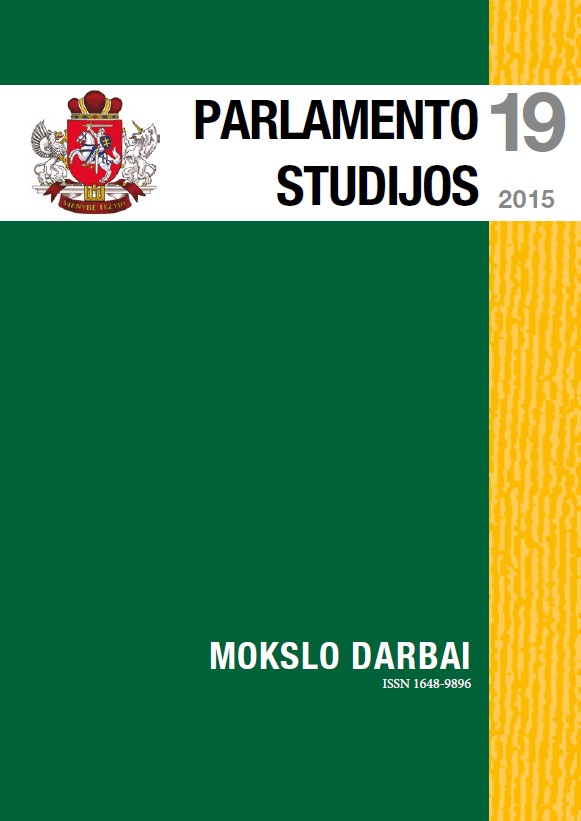The Importance of Seimas Institution to Lithuanian Nation in the 20th Century
DOI:
https://doi.org/10.51740/ps.vi19.175Keywords:
Constituent Seimas, party, parliament, president, opposition, authoritarian regime, occupation, The Supreme Council of the Republic of LithuaniaAbstract
Sociological polls show us, that after the restoration of Lithuanian independence Seimas institution has very low ratings among Lithuanians. We can hear voices, that parliament works inefficiently and this institution is unnecessary. It is not secret, that part of the Lithuanians with admiration talk about “Smetona’s Lithuania” (1927–1940). During this period President of Lithuania Antanas Smetona refused to organize elections to Seimas for nine years, since 1927 till 1936. He ruled Lithuania as authoritarian leader. While the attitude towards the period of occupations in Lithuanian society is totally negative. One of the arguments of this attitude is the absence of Seimas institution during occupation years. It remains unclear why the Lithuanian people differently rated (or rates) this institution. The article aims to reveal the importance of Seimas to Lithuanians and tries to answer the question why people had very different attitude towards this institution.
Chronologically article analyses the period between the December of 1905 till the March of 1990. In 1905 the first Lithuanian “parliament” was convened. It was called The Great Seimas of Vilnius. In 1990 the first democratically elected legislative institution in Soviet Lithuania – The Supreme Council started its proceedings. Later it was named as Supreme Council of Republic of Lithuania.
The article shows, that after 95 years since the first democratically elected Constituent Seimas was elected, this institution became one of the most important political institutions. In 1990 the Supreme Council was elected and its achievements were equated to the Constituent Assembly. Democratically elected parliament was ideal for majority of Lithuanians during the authoritarian Smetona’s regime in the thirties and during the Soviet occupation period. Despite the political conditions Lithuanians in modern times are proponents of democratic governance.








 The metadata of the scholarly journals and publications of the Lithuanian National Martynas Mažvydas Library is distributed by
The metadata of the scholarly journals and publications of the Lithuanian National Martynas Mažvydas Library is distributed by 